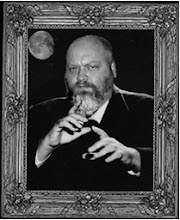An Interview with Darwyn Cooke
NASO: For a while now, people have been talking about the troubles of the comic industry, from the lack of mainstream acceptance to failed marketing to decreased sales. But historically there have been spikes in general public interest in comics. Does the change in the way people view heroes have anything to do with the fluctuations in the health of the comic book industry?
COOKE: Hmmmmm, I don't think so. There hasn't been any real spike in outside interest since the early 1990s, and it wasn't fueled so much by new readers as it was new club members and speculators. I firmly believe every other so-called spike was simply a spike within the existing market. That is, sucking more money per month out of the same customers. Both of the Big Two are terrified of the Mass Market for two reasons:
1. It would take a major investment and risk to regain the mass market.
2. Comic creators, editors and publishers would actually have to do their jobs — sell populist fare by the truckload that appealed to the mass market. They would have to give up this tight little circle where people care more about Bruce's feelings than they do whether there's a Batman story actually taking place. They'd have to work all ages with public light cast on the book's actual content, they'd have to compete with better written and produced entertainment from other media. Books that didn't sell would die. "Creators" who couldn't meet a monthly schedule would be restricted to specials and one-shots. Public taste and trends would have to be embraced. The precious superhero would have to share the stage with other more relevant genres like Romance, Crime, Horror, Humour and the like. Dicks like Kevin Smith would have to save their juvenile, oral-sex innuendo for something other than a mainstream DC comic.
The comic book industry in America is a cottage industry aimed at a very exclusive audience. That's why they don't sell. For 20 years, Hollywood has been making millions off comic properties and the zombies chant about how it will translate in sales... and it never does. Because the comics are cryptic, inaccessible, overpriced and aimed at anything other than a mass market.
Read the full interview here.
COOKE: Hmmmmm, I don't think so. There hasn't been any real spike in outside interest since the early 1990s, and it wasn't fueled so much by new readers as it was new club members and speculators. I firmly believe every other so-called spike was simply a spike within the existing market. That is, sucking more money per month out of the same customers. Both of the Big Two are terrified of the Mass Market for two reasons:
1. It would take a major investment and risk to regain the mass market.
2. Comic creators, editors and publishers would actually have to do their jobs — sell populist fare by the truckload that appealed to the mass market. They would have to give up this tight little circle where people care more about Bruce's feelings than they do whether there's a Batman story actually taking place. They'd have to work all ages with public light cast on the book's actual content, they'd have to compete with better written and produced entertainment from other media. Books that didn't sell would die. "Creators" who couldn't meet a monthly schedule would be restricted to specials and one-shots. Public taste and trends would have to be embraced. The precious superhero would have to share the stage with other more relevant genres like Romance, Crime, Horror, Humour and the like. Dicks like Kevin Smith would have to save their juvenile, oral-sex innuendo for something other than a mainstream DC comic.
The comic book industry in America is a cottage industry aimed at a very exclusive audience. That's why they don't sell. For 20 years, Hollywood has been making millions off comic properties and the zombies chant about how it will translate in sales... and it never does. Because the comics are cryptic, inaccessible, overpriced and aimed at anything other than a mass market.
Read the full interview here.


0 Comments:
Post a Comment
<< Home